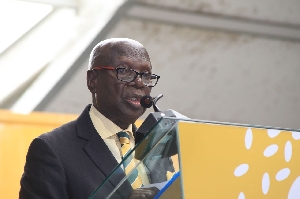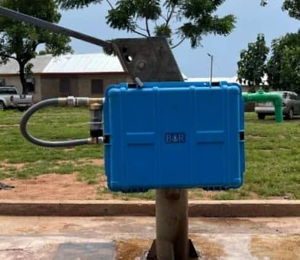Digitalizing fundraising in Africa is perhaps the solution to the numerous problems surrounding donor aid on the continent, Mr Saqib Nazir, the Chief Executive Officer (CEO) of FundRasingAfrica has said.
He was speaking at a two-day strategic workshop organized by Penplusbytes in collaboration with FundRaisingAfrica in Accra on Tuesday.
The workshop which was under the theme “Strategic briefing on fundraising using New Digital Technologies,” was to equip participants with new media technologies in their fundraising activities in order to survive the recent decline in donor aid.
It was attended by representatives from NGOs, Faith-based Organizations, Clubs, Community-based Associations, Journalists and Donor agencies.
Participants were taken through fundraising strategies and how to improve upon them. They were also exposed to the use of social media and other tools in fundraising campaigns, and then assisted participants to set up their own online fundraising tools.
Mr. Nazir stressed the need to bridge the gap between the transfer of money through the internet and giving of physical cash. “If one wants to do global business, one would be looking at the ability to accept master card, for instance,” he observed.
This, according to him, had a huge impact on the democratization of the process of fundraising as it affords the opportunity for everyone to be part of the process. “It also gives room to transparency and accountability to all across the globe to monitor donations,” he noted.
Earlier in a welcoming address, Mr Kwame Ahiabenu, the Executive Director of Penplusbytes, observed that the use of new digital technology in fundraising had reached its full capacity where it could help an organization to achieve its goals.
Mr Ibrahim Tanko, an independent Consultant, observed that for an organization to raise substantial funds, it must resort to the use of new digital applications including twitter, whatsup and facebook, and cited how new media was used to raise 22m U.S dollars within one week for Haiti during the crisis in that country in 2010.
Mr Tanko who was guest speaker at the programme indicated that donor funding was dwindling, and that Star Ghana which gave the biggest funding to civil society in Ghana, got a lot of distress calls when it wound up its activities in the country six months ago.
According to him, a lot of donor agencies had also given notice of a possible shut down soon, and cited DANIDA as an example.
He noted that donor countries were shifting focus from making donations in the common interest to their own specific national interests, hence the beneficiary’s interest must conform to that of the donor.
He further stated that Corporate Social Responsibility (CSR), which was another means of raising funds was now being seen as a mere branding tool for the donor organizations, and as such “it is difficult for civil society organizations to fit into CSR.”
Mr Tanko, therefore, affirmed that technological innovation held a lot of potential for the future of fundraising, and that it was very useful when one prepared adequately to take advantage of it.
“We are in a tool-driven society, but we must tailor tools to reflect the needs of society”, he said, adding that there was the need to depart from the traditional means of fundraising which had its own setbacks.
Mr Tanko indicated that to run an efficient fundraising campaign there was the need for an organization to create legitimacy by ensuring that it stayed credible in the eyes of recipients. “It would be credible if it is seen to be responding to their everyday needs and not what the donor wants”, he stated.
He said effective fundraising also meant individualizing the process by touching the heart of the donor with messages that were appealing, adding that one must also be innovative and look at a creative way of using the tools at ones disposal.
Regional News of Thursday, 22 October 2015
Source: GNA
















